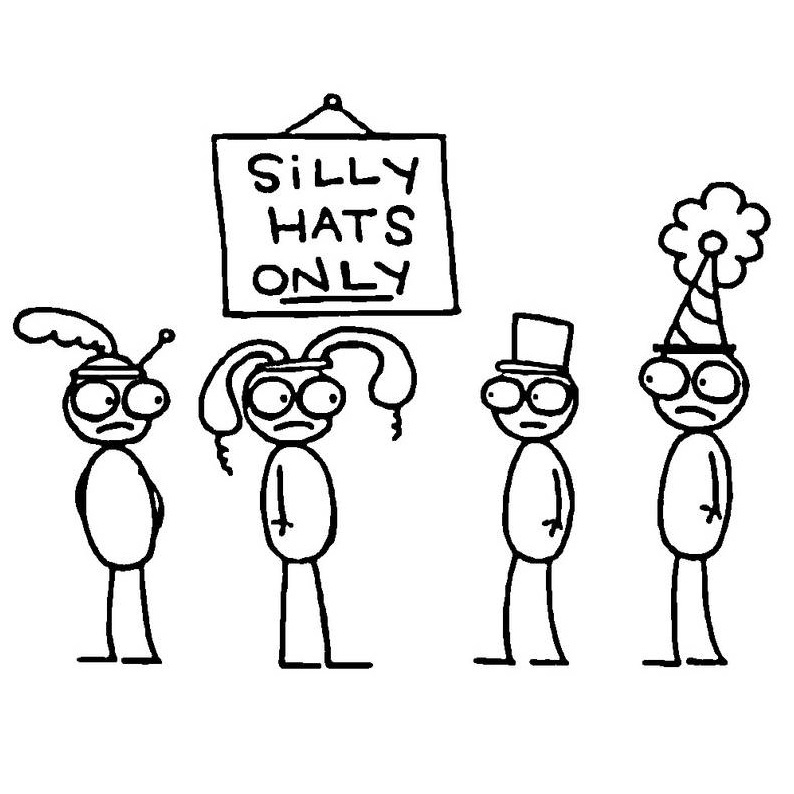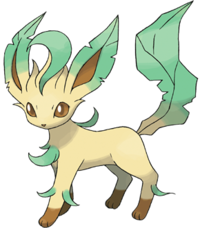Boy English is pretty tame. My native language has gendered pronouns for what feels like every type of relative you can have. I don’t see my extended family very often so truthfully I don’t even know half of those pronouns. Sometimes a relative pops up out of nowhere and I get all confused about pronouns again. Seriously, like last year at a family gathering my aunt (maybe? idk, she’s my grandmother’s niece) brought someone and was like “heyyyy yall are related come say hiii” and she was like brand new information to everyone there lol.
In German:
Man = male (der Mann)
Woman = female (die Frau)
Boy = male (der Junge)
Girl = neutral (das Mädchen)
No idea why lol.
Also I’m learning French and everything has a gender but I don’t see any pattern to it at all. Pizza is female, books are male, a suitcase is female, hats are male and so on.
Also in French, the names of numbers go absolutely mental once you go above about 50. That’s got nothing to do with gender but I want to complain it whenever I can.
Girl = neutral (das Mädchen)
No idea why lol.
Mädchen is a diminutive, and all diminutives are grammatically neutral.
It’s the same in Dutch btw, and my girlfriend who is learning Dutch is frequently abusing this as a cheat code: whenever she doesn’t know the gender of a word, she’ll just use the diminutive and it will automatically be neutral.
I just might have just learned smth about my native language.
Ohh oui, french numbers I think they go mental after 69 ( ͡° ͜ʖ ͡°)
70: 60+10 (soixante-dix)
91: 4x20+11 (quatre-vingt-onze)
Why? No clue I am not french.
May or may not have some relation, but next to France/part of, lies the Basque country, where all numbers under 100 are base 20+10, except 11 and 19…
57: 2×20+10+7 (berr-ogei-ta-hama-zazpi)
79: 3×20+19 (hiru-r-ogei-ta-hemeretzi)
French (in Belgium, Switzerland, and former colonies) also allows simple base 10:
70: 70 (septante)
91: 90+1 (nonante-et-un)
…so the geographic location seems to have an impact.
And just next to it, in Spain, everything is base 10… except 11 to 15 change the order from n×10+m, into 1+10 to 5+10.
Italian does the same, except it’s 11 to 16… just like in French.
English has a hiccup with eleven and twelve, then goes to n-teen, before going base 10 with n×10+m above 20.
German does the same, except it goes to m+n×10 above 20.
Overall, 20 seems to be a magic number, France just seems to have mixed in different ways of using it.
They obviously ran out of fingers and toes at fifty, so they traditionally never went any further.
So french is just like portuguese, but in portuguese you normally know if something is male or female by the ending of the words (with a feel exceptions), for example pizza is female because ends with “a”
This is the same in french, the gender of words is generally determined by their ending. (Which is not pronounced.)
But French is so hard to find rules about that compared to say Spanish.
English French Spanish ? a mouse une souris el raton / el mouse so in French “-is” is a female ending? a mouse pad un tapis de souris una afombrilla de mouse no, tapis is male, even if souris is female a cable un câble un cable ok, if it ends in “e” it’s male? an icon un icône un icono yes, ends in “e” it’s male! the memory la memoire la memoria no, ends in “e” it’s female! Spanish is much simpler: ends in ‘a’ it’s mostly female (except stupid poema, and a few others), ends in ‘o’ it’s male (except foto, and a few others). If there’s a rule to French I don’t know it, and none of my French teachers knew it. If you’re French, you just grow up learning which words are male and which are female, so French speakers just naturally know and can’t explain it.
Yeah, there are quite a lot of exceptions but “-e is female, otherwise is male” works most of the time. Then if you want to be more precise you can remember some generic exceptions like -age, -isme are male and -tion, -té is female. You’ll still have some exceptions like une souris, une vis, une dent, un câble, un graphe, un cône, une image (exception to the exception) but it probably works in about 80-90% of cases.
(Also “icône” is actually female in French)
Good to know, french is on my list of languages that i wanna learn someday
I’ll just leave this one for you :)
Here is an alternative Piped link(s): https://piped.video/xX_IOqkRsdw?si=bSwRh7yXyl6NAfT_
Piped is a privacy-respecting open-source alternative frontend to YouTube.
I’m open-source, check me out at GitHub.
Mädchen is neuter because it is diminuitive.
Das Häuschen Das Bäumchen Das Hügelchen
and so on. Diminuitive is always neuter, and Mädchen is diminuitive of Magd (or Maid, I forgot).
I think it’s das Mädchen because it’s a sort of diminutive (by use of chen). But it’s been a while since I studied German.
Afaik it comes from Magd, which is female lol.
related to maid, mädel. confer “maiden” in English
Aber was machen Sachen :o
Correct, all diminutives are neuter in German. In this instance the base word is die Magd (historically the maiden, nowadays the maid), which is grammatically female.
In contrast to Mädchen the equivalent for Junge, „Jüngchen“, has not entered officialese and is seldomly used in colloquial language.
And it is also „das Jüngchen“.
Austrians: da buah
German is so weird. They came up with the concept of a neutral gender, but objects that obviously have no real gender (tables, boxes, sunglasses) don’t use neuter.
Like, what’s the process when they create a new word.
“Computer”… hmm, I think it’s female.
Nah, it’s neuter.
You guys are idiots, he’s obviously male!
Oh yeah, Gunther is right! Look at him!
I’m really curious what the process for it forming was like too but just gonna put it out there that gender in language generally has more to do with tracking what the word is than literally thinking stuff has gender. Originally there was a proposal to call it left and right to make it clear that it’s just a split.
Computer means Rechner, which is obviously male, because women can’t math. It’s easy if you just think about it.
My favourite is some words having different pronouns in different regions. Like der/die/das Nutella, der Butter, das Joghurt 😳
Who the fuck says “der Butter” or “das Joghurt”? Nutella is difficult, because it’s a name.
Einige Regionen in Bayern. In Teilen Österreichs auch gerne feminin die Joghurt
deleted by creator
Because we already had a word for “computer” (literally: calculator) which had the male article so when we started using the English word “computer” we kept the article :)
In gendered languages the “gender” of things other than people doesn’t really relate to human gender at all. It’s just a grammatical construct.
Mostly yes, but a few gendered languages (Wikipedia lists the Yeniseian and most Dravidian languages, Dizi and Zande) use strict semantic criteria, so that the grammatical gender does correlate strictly with the actual gender 99% of the time.
No idea why lol.
This always confused me, even as a native speaker so I looked it up some. Ultimately it’s because modern German is the confluence of multiple older, historic languages one of which came from a tree with a strict male/female rule for nouns while the other one’s grammar defaulted to a neutral case.
As languages merge or adopt from others they often becomes a conjoined mess of multiple rules coexisting at the same time. A contemporary example is that in English the plural of a word is usually formed by attaching the suffix “s” to the singular form, aka house becomes houses. However there’s plenty of exceptions (mouse, mice) in particular if the words stem from a different language (octopus, octopi but nowadays octotuses is also acceptable). In that sense to people not privy to the etymology of words and who only study/learn the language per se there would be no perfectly accurate mechanism to predict the plural of a word.
It was to make the male seem more important. Even in English the word “woman” comes from “wife man”. Everything was about the pecking order in history. Gender bias was a major part of that.
That’s a misrepresentation of old English. Man used to be neutral, and was modified by were and wif respectively for man and woman. Wife comes from woman, not the other way around.
Also bonus content:
singular: “das Mädchen” (neutral) - the girl
plural: “die Mädchen” (female) - the girls
So in the plural form you have to use a female article again, but the actual spelling of the word is unchanged. Go figure 🤷♂️ 🇩🇪.
In plural every gender has the article “die”
Well at least it consistently unlogical. But wait: it actually depends on the grammatical case for example:
die Mädchen = the girls das Haus der Mädchen = the house of the girls // the girls’ house
So depending on context male, female, neutral articles are all used (der Mädchen, die Mädchen, das Mädchen) 🤷♂️
That’s not a male article, that’s the genitive plural article
The simple past of read is read, but you pronounce it like red. I assume ever language on earth has its quirks.
“Die” is always the plural article:
DAS Auto - DIE Autos / DER Baum - DIE Bäume / DIE Fliege - DIE Fliegen /
I only speak English but I have always thought we should pronounce 11 through 19 as tendy one, tendy two, tendy three, tendy four… tendy nine, twenty.
Huh?
I don’t know why, but that’s disgusting
I hate to break it to you bub, but it appears that you don’t speak English either.
so you pronounce eleven as tendy one?
Eleven through nineteen do not follow the same naming convention that the twentys, thirtys, forties and so on do. For example, fifty one, fifty two… Instead of eleven it should be tenty one. The pattern should match.
Ah, yes the famous quatre-vingt-dix-neuf (commonly pronounced “quatre-vingt-deez-nuts”). Numbers are quite a mouthful in French. One of the reasons I erased it from my memory the moment I didn’t need it no more.
French here. If you learn in Belgium or Switzerland, they have “septante” and “nonante” for 70 and 90.
It’s for sure more intuitive, but you have to admit that saying “four-twenty-twelve” (non-french speakers: that’s literal translation for 92) is sooooo cool!
Honestly I wish English was less gendered than it is.
E.g. Nephew/Niece, why is there no proper gender-neutral one. This isn’t just for LGBTQ stuff, just seems silly to have everything gendered in general
There is: cousin
A cousin is your aunt/uncle’s kid, a niece/nephew is your sibling’s kid
See: Nibling
Fair enough, learn a new thing each day haha
Altho I think it still says something about how we use English that I don’t think I’ve ever heard that used
Pibling (parent-sibling). Spanish speakers also have Titi (combining tio and Tia) and Italians (but NOT French) can use Zizi.
There’s also Unty and Auncle. I like Piblings though.
but NOT French
What happens if they try? Do they go to jail or is it just a fine?
Zizi is French slang for “penis”
Oh! Yeah, I guess calling your relatives that could become slightly problematic… 😂
The Académie Française shows up and threatens your family.
Agree. Your point still stands. I just like that word.
Nibling is a great word. But we need a neutral version of aunt or uncle.
nunt?
Aunticle
deleted by creator
We have a pretty good genderless pronoun, but have also decided that to not assign a gender to a person makes them not human. I’ve been hoping we’d challenge that preconception. Anyone can call me, “it”, anytime.
I call animals “it” sometimes cause their sex is wildly irrelevant to me, and people get so offended lmao
Based, I feel the same
My language doesn’t even have a word for sibling which has annoyed me every since I learned English 15 years ago.
The gender neutral for nephew/niece is nibling
Ok but in writing you do, at least if you’re my college professors and want to make your students sad
他 third person singular, neutral 她 she 它 it (non-human, especially inanimate) 牠 it (animal) 祂 third person singular (divine)
Chinese also has words for he.
That’s literally the first one he mentions
Tbf he mentions neutral, but it’s both
Meanwhile in Japanese, you get to gender YOURSELF!
Gender is a myth invented by toilet companies to sell more toilets.
It’s a little known fact that men were created in 1925 by a marketing company tasked with selling urinals.
Are there any myths created by the bidet industry?
It’s a manufactured problem by snowflake, conservative douchebags.
We just use the word “they” if we aren’t sure. The types upset by this are dumbasses.
I tried telling this to a someone and they claimed it made sense. Then I ended up using a sentence with they/them replacing genders, inserting the subject’s name where it made sense for clarity. " That is the most confusing text I have ever received."
🤦♀️
I’ve determined this is how she looks like an accepting and inclusive person while actually prefering ignorance.
For the lazy:
“Do you use gender pronouns?”
deleted by creator
In French (and probably many other languages) first person plural is more polite. People in England started defaulting to “you” as it was a safer bet socially, and “thou” fell out of use.
English also used thorn (þ) before for “th” but printing presses didn’t, and substituted “y”, which I suspect contributed.
Wikipedia confirms, in particular on this page on the expression ye olde.
Interestingly the you / thou distinction existed because of French / Latin influence (see the T-V distinction https://en.wikipedia.org/wiki/T–V_distinction). Thou was generally for addressing intimate / inferiors. English just drifted to using the more formal “you” across time and dropped the thou.
Well, when thou disappeared you took it’s place.
No you
The argument seems to be that, in a language with ungendered pronouns, all genders are included, so you don’t need neopronouns for the purpose of inclusion. Nevertheless, you could still replace an ungendered pronoun with a neopronoun to be more accurate, or for other purposes.
Me whose native language conjugates verbs and adjectives according to subject’s gender:
wasz język nie wymaga sprecyzowania płci podmiotu w każdym zdaniu?
Also Chinese kind of has gendered pronouns: 你 and 妳, both mean ‘you’ and are pronounced the same but the latter is used in writing to address females specifically. Though this is Taiwanese Mandarin-specific.
edit: 他她 as well obviously
Yeah Chinese isn’t a perfect example with the existence of 你妳 and 他她, etc. Though to be fair I’ve noticed native Chinese speakers get pretty confused by English pronouns and tend to mix them up since it’s mostly optional in Cheese.
Optional in cheese sounds like a lactose intolerant thing (my autocorrect tried putting in optimal and lacrosse, which was funny to me)
I was so confused when I saw your comment abou lactose intolerance and was wondering what it has to do with “optional in Chinese.” It took longer that I’d like to admit to realize that the original comment and yours said “cheese.”
How about Optimal Cheese Macross
Interestingly, written Chinese does have a gendered ‘she’ pronoun, 她, but it’s pronounced the same as the male one, and it’s a recent invention meant specifically to improve compatibility with Western languages.
Also, if you want a sample of how this works in English, the narrator / main character of Ann Leckie’s “Ancillary” trilogy doesn’t understand gendered pronouns and constantly gets them mixed up.
Except in that trilogy, in their language everyone’s a “she”. So, it’s not like the narrator constantly flips back and forth between “he” and “she” randomly, it’s just that the default is “she” when talking about a person, and the narrator has to make a real effort to use “he” when it’s appropriate.
It’s different following a story from someone who speaks a language without genders (say Chinese) or one with different rules about genders (Spanish). A Chinese person will often just use the wrong gender, and won’t be consistent about it. What’s really weird is that in Spanish the gender goes with the object being possessed, not with the possessor of the object. The third person pronouns don’t have gender of their own, it’s just “su” or “sus”. So, “his house” is “la suya” because houses are female, her books are “los suyos” because books are male. That leads to all kinds of confusion over things like “his wife’s friend” or “her brother’s job” when trying to translate to English on the fly.
This is true today but for a while in the 20th century 伊 was used for “she”
I’ve stopped learning Chinese when I left the country. I’ve only had HSK 2, but man do I miss no conjugation, you ate an apple pie for breakfast this morning? Well "This morning breakfast I eat an apple pie.
You already told it was this mornings breakfast with context.
This is something you really see when discovering another language that is not yours. I’m on Modern Speaking Arabic right now and I see it a lot
doesn’t Chinese have pronouns though?
她 she 他 he 它 it
or am I missing something ?
Then you have Welsh where a lot of things are double affirmed in sentences removing ambiguity. even for the word yes you conjugate your reply as it depending on the quesrion they asked you.
Wyt. (Yes, you are. when asked as Am I?)
Ydw. (Yes, I am.)
Ydy. (Yes, he is.)
Ydy. (Yes, she is.)
Ydych. (Yes, you are. when asked as are We?)
Ydyn. (Yes, we are.)
Ydyn. (Yes, they are.)
How do you pronounce Ydw, Ydy and Ydych?
Seems to be like “Eh-dew”, “Eh-dee”, “Eh-dich”, so eh- or uh- for the Y at the start. Welsh IPA guide on wiktionary says Y at the start is like the a at the start of “about”, when it’s not either a single-syllable or in the last syllable of a word, in which case it’s an “eee” sound, like the end of “happy”.
Cries in HSK 0
deleted by creator
My turn: Nektek vannak nemek szerinti névmásaitok?
in my language we have one pronoun for all genders(siya). it just morphs depending on context(siya/sila/niya/nila).
Kalian punya kata ganti?























